Ultrasonic Thickness Gauge
20000.00 INR/Piece
Product Details:
- Usage Industrial
- Frequency 50-60 Hertz (HZ)
- Product Type Ultrasonic Thickness Gauge
- Color Black
- Size 150mm X 74mm X32mm
- Material Stainless Steel
- Accuracy 0.5 %
- Click to View more
X
Ultrasonic Thickness Gauge Price And Quantity
- 20000.00 INR/Piece
- 1 Piece
Ultrasonic Thickness Gauge Product Specifications
- Industrial
- Stainless Steel
- Ultrasonic Thickness Gauge
- 50-60 Hertz (HZ)
- 0.5 %
- 150mm X 74mm X32mm
- Black
Ultrasonic Thickness Gauge Trade Information
- 100 Piece Per Week
- 7-10 Days
Product Description
An ultrasonic thickness gauge is a device used to measure the thickness of a material using ultrasonic waves. It's commonly employed in various industries such as manufacturing, construction, aerospace, and marine to assess the integrity of materials like metal, plastic, glass, and composites.
Here's how it typically works:
1. Transducer: The ultrasonic thickness gauge consists of a handheld device with a probe or transducer. The transducer emits ultrasonic waves (sound waves with frequencies above the range of human hearing) into the material being measured.
2. Propagation of Waves: These ultrasonic waves travel through the material until they encounter the opposite surface. Upon reaching the surface, they reflect back to the transducer.
3. Measurement: By measuring the time it takes for the ultrasonic waves to travel from the transducer to the material's surface and back, the device calculates the thickness of the material. The speed of sound in the material is a critical parameter used in this calculation.
4. Display: The thickness measurement is displayed on the gauge's screen. Some advanced models may also provide additional features such as data logging, statistical analysis, and connectivity options.
5. Calibration: Ultrasonic thickness gauges need to be calibrated for accuracy, typically against known standards or reference materials.
Ultrasonic Thickness Gauge Specifications:
1. Model Name/Number: PRO ACCUR-1
2. Measuring Range: 0.75mm to 500.0mm
3. Size: 150mm X 74mm X32mm
4. Materials: Steel
5. Accuracy: 0.5 %
6. Battery Type: Type AA alkaline battery 1.5 V 2
7. Operating Temperature: -10 to 60 Deg
Ultrasonic Thickness Gauge Applications:
1. Manufacturing: Ultrasonic thickness gauges are used during the manufacturing process to ensure the thickness of materials meets design specifications. This includes materials such as metal sheets, pipes, tanks, and other fabricated components.
2. Corrosion Inspection: One of the primary uses of ultrasonic thickness gauges is in assessing corrosion levels in structures made of metals like steel or aluminum. By measuring the remaining thickness of the material, inspectors can determine the extent of corrosion and assess the structural integrity.
3. Petrochemical Industry: In industries dealing with pipelines, storage tanks, and pressure vessels such as oil and gas, petrochemicals, or chemical processing plants, ultrasonic thickness gauges are vital for monitoring corrosion and detecting potential weaknesses that could lead to leaks or failures.
4. Aerospace and Aviation: Ultrasonic thickness gauges are used for inspecting aircraft components such as fuselage, wings, and engine parts to ensure they meet safety standards and have not experienced significant thinning due to fatigue, corrosion, or other factors.
5. Marine Industry: In ships, boats, and offshore structures, ultrasonic thickness gauges are employed for monitoring hull thickness to prevent hull corrosion, assess structural integrity, and determine the need for maintenance or repair.
6. Construction: Ultrasonic thickness gauges are used in construction for assessing the thickness of concrete structures, such as bridges, tunnels, and buildings, to ensure they meet design specifications and maintain structural integrity over time.
7. Automotive Industry: In automotive manufacturing and maintenance, ultrasonic thickness gauges are used to measure the thickness of automotive components like body panels, chassis, and engine parts, helping ensure quality and safety standards are met.
8. Power Generation: In power plants, ultrasonic thickness gauges are utilized for inspecting boiler tubes, piping, and other components to monitor for corrosion, erosion, and other forms of degradation that could compromise safety and efficiency.
Ultrasonic Thickness Gauge FAQ:
Q. How does an ultrasonic thickness gauge work?
Ans: Ultrasonic thickness gauges work by emitting ultrasonic waves from a transducer into the material being measured. These waves travel through the material and reflect back to the transducer. By measuring the time it takes for the waves to travel and return, the gauge calculates the thickness of the material.
Q. What materials can be measured with an ultrasonic thickness gauge?
Ans: Ultrasonic thickness gauges can measure the thickness of a wide range of materials, including metals (steel, aluminum, copper, etc.), plastics, glass, composites, and more.
Q. What are the advantages of using an ultrasonic thickness gauge?
Ans: Advantages of ultrasonic thickness gauges include non-destructive testing, fast and accurate measurements, suitability for a wide range of materials and applications, and the ability to inspect structures without disassembly.
Q. What factors can affect the accuracy of measurements?
Ans: Factors such as material properties, surface conditions (roughness, curvature), temperature, and the presence of coatings or layers can affect the accuracy of ultrasonic thickness measurements. Proper calibration and technique are important for obtaining accurate results.
Q. How do I calibrate an ultrasonic thickness gauge?
Ans: Ultrasonic thickness gauges need to be calibrated for accuracy, typically against known standards or reference materials. Calibration procedures may vary depending on the specific model and manufacturer instructions.
Q. Can ultrasonic thickness gauges measure through coatings or paint?
Ans: Yes, ultrasonic thickness gauges can often measure through thin coatings or paint layers to determine the thickness of the underlying material. However, the accuracy of measurements may be affected by the properties of the coating.
Q. Are ultrasonic thickness gauges portable?
Ans: Yes, most ultrasonic thickness gauges are designed to be portable and handheld for ease of use in various industrial settings.
Q. What are some common applications of ultrasonic thickness gauges?
Ans: Common applications include manufacturing, corrosion inspection, petrochemical industry, aerospace, marine industry, construction, automotive industry, power generation, and more.
Q. Are there different types of ultrasonic thickness gauges?
Ans: Yes, there are different types of ultrasonic thickness gauges available, including basic handheld models, advanced models with additional features such as data logging and connectivity options, and specialized gauges for specific applications or industries.
Enter Buying Requirement Details
 English
English Spanish
Spanish French
French German
German Italian
Italian Chinese (Simplified)
Chinese (Simplified) Japanese
Japanese Korean
Korean Arabic
Arabic Portuguese
Portuguese
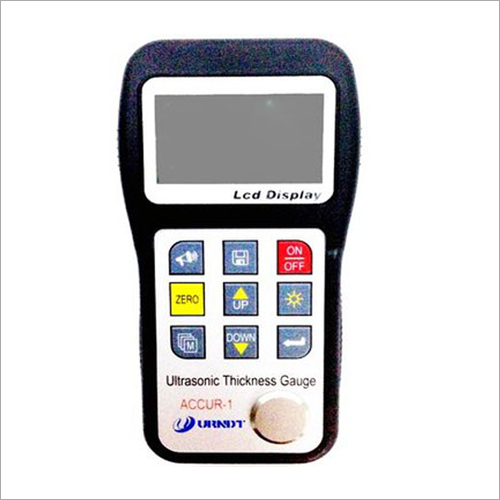
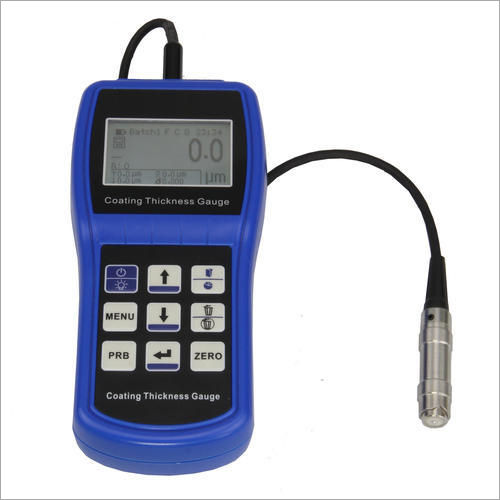
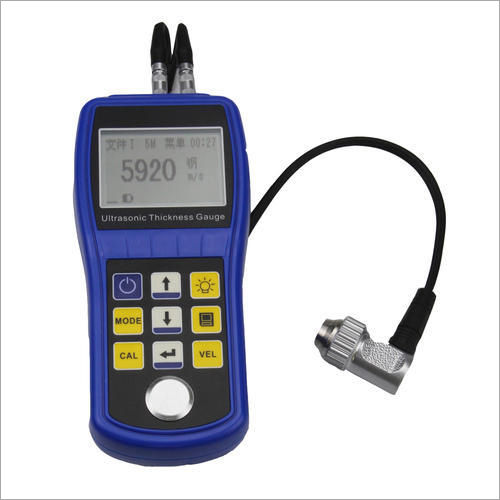
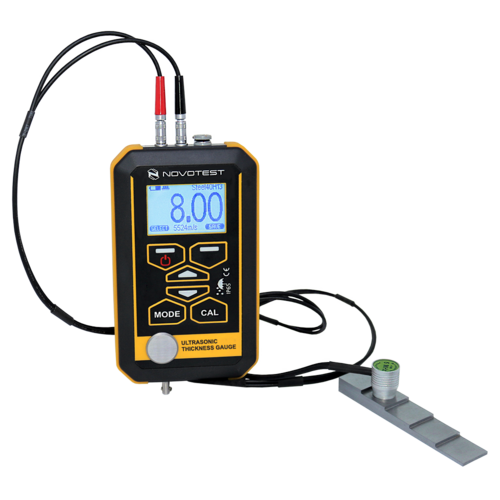
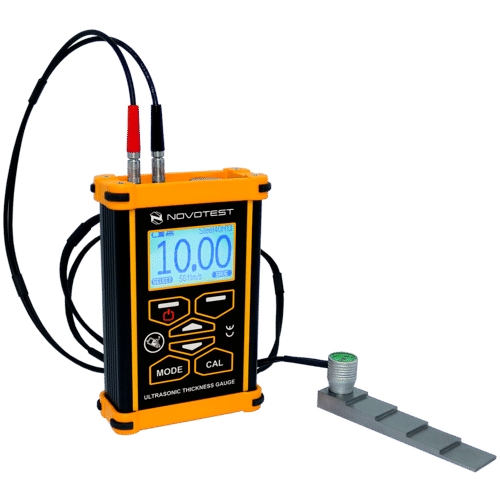
 Call Me Free
Call Me Free